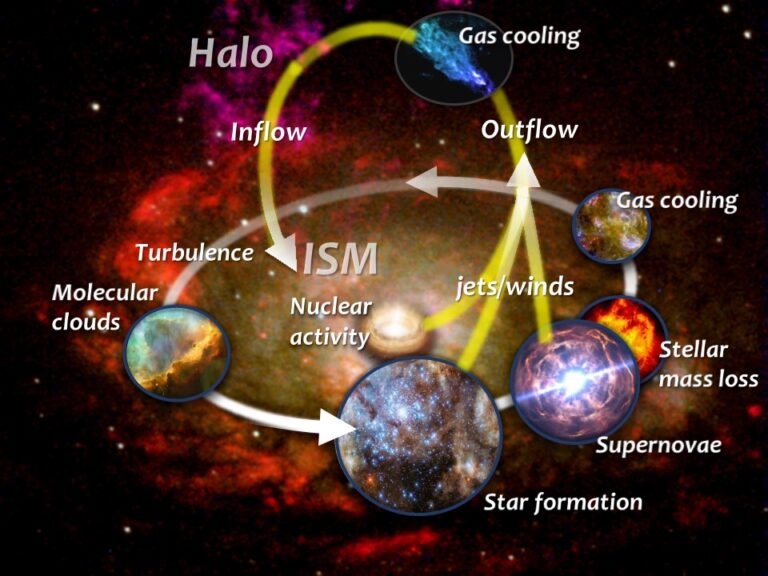Higher Degree by Research Application Portal
| Title | Feeding galaxies: The interplay between gas and star formation in nearby galaxies |
|---|---|
| Supervisor | Prof Barbara Catinella |
| Course | Doctor of Philosophy |
| Keywords | Astrophysics; galaxy evolution; observational astronomy; interstellar medium |
| Research area | Physical Sciences |
| Project description |
Cold hydrogen gas is the raw material out of which new stars are made, and therefore is a key component to understand how galaxies form and evolve. Galaxies are basically factories that process cold gas into stars, via the so-called gas-star formation cycle. Measurements of the cold gas (i.e., atomic and molecular hydrogen) have been lagging compared to measurements of the stellar properties of galaxies, thus significant effort is going into building large and representative samples of galaxies with all the necessary measurements to study the gas-star formation cycle.
We lead or are deeply involved in a number of state-of-the-art, multi-wavelength surveys of the interstellar medium of nearby galaxies. MAUVE is an ongoing large program on the 8-meter Very Large Telescope in Chile to understand the evolution of the inner regions of galaxies in large clusters, building on the VERTICO survey of molecular gas. WALLABY is carrying out the largest census of atomic gas in galaxies ever done and has already detected over 4,000 galaxies. This is a very exciting time for studies of cold gas in galaxies!
With these exquisite data we can seek answers to big questions such as: Why star-forming galaxies such as our own Milky Way have not run out of fuel a long time ago? What are the main processes regulating gas accretion and gas loss in the local Universe? How do these depend on both the local and the large-scale environments of galaxies?
Join our vibrant research group! We offer PhD projects spanning a wide range of topics under the general area of gas and star formation in nearby galaxies, making use of the surveys mentioned above (and more!). The students will acquire skills in processing and analysis of multi-wavelength data sets, handling large data sets, statistical analysis, and comparison with theory.
|
| Opportunity status | Open |
| Open date | 01 Jul 2024 |
| Close date | 31 Dec 2024 |
| School | Graduate Research School |
| Contact | International Centre for Radio Astronomy Research (ICRAR): email | web |
| Course type | Doctorates |
| Description | The Doctor of Philosophy (PhD) is a program of independent, supervised research that is assessed solely on the basis of a thesis, sometimes including a creative work component, that is examined externally. The work presented for a PhD must be a substantial and original contribution to scholarship, demonstrating mastery of the subject of interest as well as an advance in that field of knowledge. Visit the course webpage for full details of this course including admission requirements, course rules and the relevant CRICOS code/s. |
| Duration | 4 years |
Guidance
